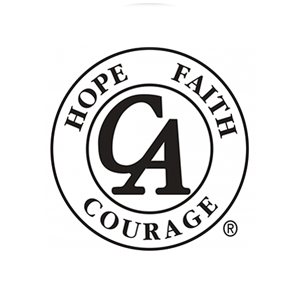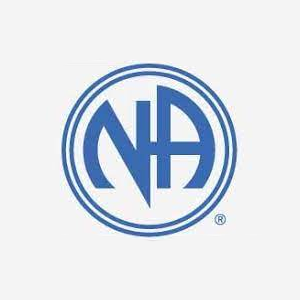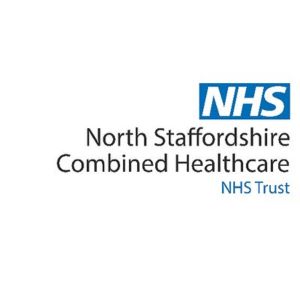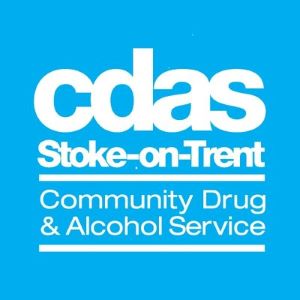Drug & Alcohol Rehab in Stoke-on-Trent

How Does Rehab Work?
Rehab is a process that assists individuals in working towards restoring balance and mental health. Rehab focuses on addressing the patient holistically with individualised therapy aimed at addressing addictive behaviours. With guidance from a professional therapist or counsellor, coping strategies are taught and individuals can access much-needed care. Strategies deal with relapse prevention and clients can be assigned to an extended inpatient programme or move to an outpatient programme. With inpatient rehab (residential rehab), individuals will live at the rehab centre for the duration of treatment. Outpatient services are an alternative option in which clients will attend daily/weekly sessions for therapy but will not attend a full-time programme. There are both free and paid outpatient services available within the UK.
What Happens During Residential Rehab?
The choice to look for rehab for drug and alcohol addiction is a courageous one and will be supported with individualised rehabilitation services. We provide a breakdown of what you can expect from the process of drug and alcohol rehab.
Rehabilitation from addiction starts with a professional medical evaluation. This evaluation or assessment helps the professional decide which treatment plan is most suited to your needs. Therapy differs from one person to the next depending on the history of drug or alcohol use and the presence of comorbidities (such as bipolar).
Assessments are followed by alcohol or drug detoxification. Individuals who enter detox will begin withdrawing from substances including alcohol, as the body returns to a normal state of function. This timeline will differ depending on the type of substance used and the length of dependency. Only when the system no longer contains traces of the substance will individuals participate in a treatment plan.
During rehab, patients will receive therapy. Therapy can be delivered on an inpatient or outpatient basis. Therapy consists of individual counselling including Cognitive Behavioural Therapy, skill-building and group therapy.
1. Assessment

A medical assessment is conducted just before treatment to identify medical history, and drug/alcohol use over time. If you are seeking residential treatment, an admissions team will provide a telephone assessment. An assessment by telephone assists the treatment centre provide a tailored treatment package. It also helps medical staff to assist the individual during detox.
To help you or someone you know, receive the best possible therapy for addiction and substance use, it is important to receive an individual assessment by a dedicated professional. The assessment will aid the direction of therapy including treatment for people with comorbid illnesses such as anxiety.
2. Detox

Detox is a period in which drugs and alcohol are no longer taken and cleared from the body. It is a process that is best managed by medical staff in a rehabilitation facility.
It is best to have a supported medical detox because the experienced staff is readily available to help you through withdrawal. As the substance is no longer consumed, you may start to experience withdrawal symptoms. Without professional help, there is a higher risk of relapsing. Detoxification is followed by a fully tailored therapeutic programme. You can attend inpatient or outpatient therapy that is lead by trained addiction counsellors and a dedicated team.
3. Therapy

Therapy involves skill-building, coping strategies, and the exploration of the reasons for addictive behaviours. It can be provided within an inpatient or an outpatient plan, each offering its benefit and potential drawbacks.
Step by Step Process for Residential Rehab
To understand your medical and mental health history.
Arrange a suitable date to begin your journey to recovery.
Begin the managed withdrawal process from substances including alcohol.
To understand the root cause of addiction and how to overcome it.
Aftercare is provided to help manage the risk of relapse.
To help heal the wounds that addictive behaviour has caused others.
Find your Nearest Rehab Centre in Stoke-on-Trent
The nearest rehab centre is The Drug & Alcohol Consultancy.
Address: The Drug & Alcohol Consultancy, Partons Bridge, Stafford ST20 0PG
Call 0333 4444 432 to discuss your alcohol or drug rehab requirements and any other questions you may have about the process of residential rehab.
Outpatient Addiction Services in Stoke-on-Trent
Inpatient or outpatient treatment for dependence can be determined by your budget requirement & individual circumstances. Nevertheless, it is an individual process that requires full commitment and awareness to succeed. To help you understand these different options, we look at outpatient addiction treatment services compared to residential treatment.
Outpatient services are not a round-the-clock or even a 12-hour programme, but instead, involve weekly sessions with a therapist or group. Individuals will stay at home and continue to work or tend to family time while receiving the necessary therapy.
PrivateOutpatient care includes individual counselling with a therapist. You will travel to the therapist and engage in hour-long treatment sessions. Apart from private therapy, you can also find free services from charities and government-driven organisations to address substance dependencies.
The Benefits of Outpatient Services
Private Outpatient practices focus on individual support that is tailored to suit the needs of those struggling with addiction. – Outpatient treatment is a more flexible service that will aid many struggling with addiction, regardless of financial or work commitments. It includes the attendance of weekly sessions that are delivered by a qualified therapist or counsellor. – It is a more cost-effective treatment programme in comparison to residential services.
The Challenges of Outpatient Services
While outpatient services play an important role in accessible addiction treatment, it is also linked with a higher relapse potential. While free outpatient services do exist through the NHS or UK-based charities, waiting times are to be expected and treatment tends to be more generic.

How Much Does Rehab Services Cost in Stoke-on-Trent?
Residential drug and alcohol addiction treatment can usually cost between £1500- £4000 a week. Private addiction treatment within a residential facility may not be accessible for everyone. Fortunately, charity and government organisations provide free or low cost services that individuals with addiction can still benefit from.
Fortunately, free programmes are offered by organisations including the NHS and charities such as Turning Point (that requires self-referrals). Other organisations that offer free and community-based therapies for drug or alcohol addiction include Alcoholics Anonymous (AA), Cocaine Anonymous, and Narcotics Anonymous.
Support Groups in Stoke-on-Trent

Stoke-On-Trent, Longton
St Mary & Chads, Anchor Rd, Longton ST3 5DX

Stoke on Sundays!
Stoke-on-Trent UK

Hanley Group
Stoke Community Drug and Alcohol Service (CDAS), 76-82 Hope Street, Hanley, Stoke-on-Trent, Staffordshire ST1 5BY
The Pros and Cons of Seeking Treatment in Your Local Area
Pros
1. You are familiar with the area which may provide a layer of comfort/safety.
2. Family or friends can easily travel to visit or are close by.
3. You could save on the costs of travelling long distances for addiction treatment, or free services may only be offered in your home town.
Cons
1. A local environment means access to drug dealers or other triggers. This is more of an issue if you opt for outpatient programmes.
2. Not considering locations outside your local area could result in missed opportunity for more valuable and rewarding programmes.
3. Addiction treatment services that are nearby do not always offer the best standard of rehab.
The CQC website will provide information and ratings on a service in the event you are unsure regarding a particular service.



